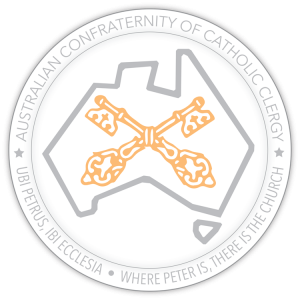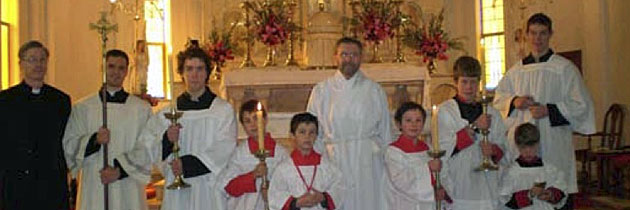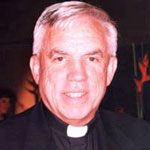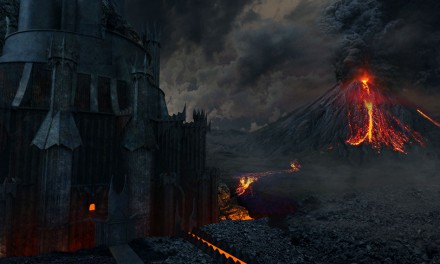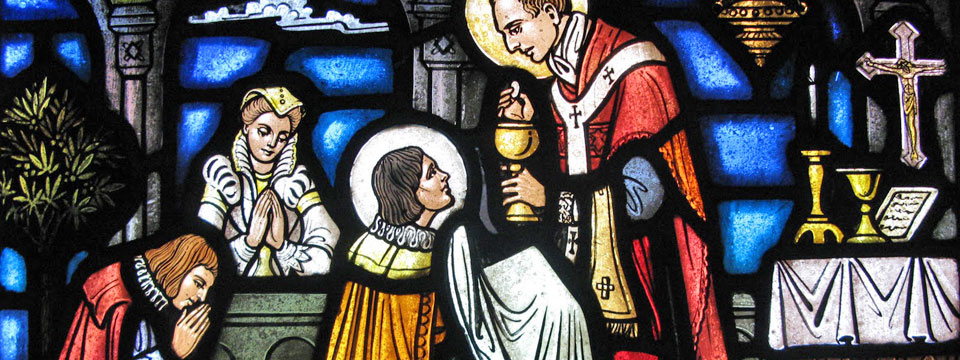No one in that large gathering knew that Dr McGavin had decided – after ten times being elected to his office – not to accept nomination at the forthcoming AGM, and so this was a spontaneous gesture from a large audience, mainly ACCC associates, for his tireless work. It signified the appreciation of these laity for the face of priests faithful to the Magisterium, and the face of a new generation of seminarians drawn to a priestly life faithful to the Holy Father, that was presented to them in The Priest. For them, The Priest and Inter Nos are the ‘flagship’ for this group of priests, strengthening their hope for the future. That was the chief feature of The Priest under Dr McGavin’s editorship.
In the 25 years of the Confraternity, its journal for the first 10 years was under the editorship of a founding member, Fr John J Walter. For the last 11 years of the Confraternity, its journal was under the editorship of Fr Paul-Anthony McGavin. Thus 21 of the 25 years of the journal had just two outstanding editors.
Dr McGavin brought a unique background to this task, having had a distinguished academic past as a UNSW professor with wide publications in the social sciences. This side of his life was not much seen in The Priest, but it certainly showed when the Vatican newspaper L’Osservatore Romano published two full-length articles by him on Pope Benedict XVI’s Caritas in Veritate, the second article being entitled Social Encyclicals and the Social Sciences. Indeed, Dr McGavin has published across a wide field of theological journals in areas including pastoral, moral, liturgical and spiritual theology. This background was implicitly evident in the ACCC publications under his editorship.
For those of us who have sat through Annual Conference presentations that – for all their value – were sometimes too long and somewhat turgid, it was a surprise (and relief) to read their text form in The Priest. The addition of headings and brief introductions often gave shape and clarity to the papers that had been presented. Sometimes the introductions themselves may have been a tad long and a bit slanted, but the bigger picture was that the papers became good ‘re-reads’ for Conference attendees.
And for those who had not attended the Conferences, the papers as presented in The Priest provided a sense of participation in the Confraternity. This was especially helpful for both priests and lay Associate Members in far-flung parts, or where ACCC members are few.
Ever since Dr McGavin took over as editor in 2000, the journal and newsletter have been produced on glossy paper, with an increasing inclusion of black-and-white and colour photographs. These inclusions have generated a brighter and more accessible look. And a review of past issues shows that shorter and more accessible articles have also appeared, so that those who are not drawn to extended reading may nevertheless find interesting and useful content.
Having been an author and editor myself, I recognise how much layout skill is involved in getting material to fit the allotted page space. It is likewise no mean feat to convince colleagues to contribute articles, and then receive them in time for printing. So I can appreciate Dr McGavin’s labours, since he sometimes had as many as 12 contributing authors in a single issue, yet he ensured that every issue in his 11 years was actually posted out in the dated month of publication. This accomplishment was, of course, greatly aided by his good working relationships with Active Print of Wagga Wagga, and Carmel Negline of the ACCC Secretariat in Melbourne.
It should also be noted that Dr McGavin served as his own publicity director. During his editorship the first ACCC website was launched and maintained; and until the Secretariat expanded its services, the brochures for Conferences and public events were usually prepared by Dr McGavin.
Perhaps his crowning achievement was the 50-page March 2010 issue of The Priest, featuring the proceedings of the joint Australian-American Conference in Rome. That issue was dominated by illustrious authors, mostly from the Vatican and Rome. Dr McGavin assiduously obtained each speaker’s electronic copy, and then exercised great diplomatic skill in convincing each speaker to submit to his editorial hand. In this task, he was greatly assisted by Melbourne priest Fr Mark Withoos of the Ecclesia DeiCommission. But perhaps the greatest wonder of that special issue is the fact that Dr McGavin produced it while on a teaching sabbatical at the major seminary in Ethiopia, where his laptop was subject to the frequent electrical ‘brown-outs’ in Addis Ababa.
Dr McGavin’s present ministry is with the Catholic chaplaincy to the University of Canberra, as well as offering Mass at St Joseph’s in O’Connor, a near inner-city parish. ACCC members appreciate his work as editor of Water for the Parched Earth, a collection of conferences for priests presented by the Emeritus Bishop of Christchurch NZ (Connor Court Publishing).
Having been published in The Priest several times during Dr McGavin’s editorship, I have a sense of the legacy that he has left the ACCC, and from my dealings with him I am certain that he will continue to make important contributions to educate and edify future readers. All of us in the ACCC extend hearty thanks to Dr McGavin for his service to the Confraternity and we wish him every blessing in his ministry.
